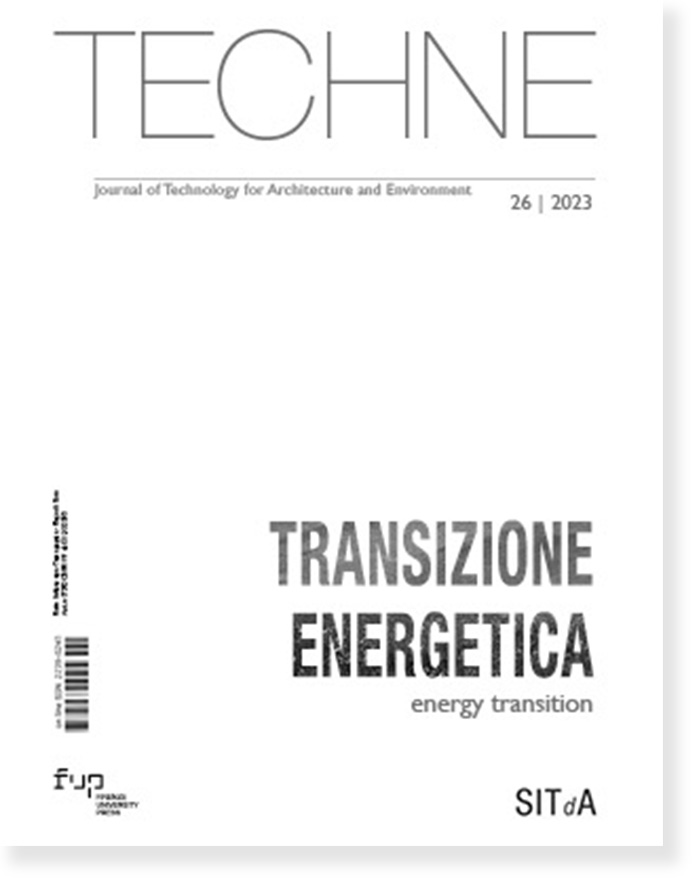No 26 (2023): Transizione Energetica
Issue Description
The possibility of a low- or even zero-carbon energy system is certainly consistent with its long-term dynamics of continuous structural change. However, if historical experience shows that the global energy system is constantly evolving, it also highlights that past transitions have taken decades. The past provides no experience of system changes comparable in scale and time to those required by the net-zero transition towards the goal of climate neutrality.
We are on the eve of an extraordinary technological leap, where humans will reorganize themselves as beings and human structure will be optimized for software. The problem is how this process will be negotiated, shared, controlled, and monitored.
The transition, understood as an "ongoing transformation," is intricately connected to the concept of experimentation. The research papers and essays featured in issue 26 of TECHNE illustrate a common vision that the transition can be realized through collaborative experiments and innovations involving the community, governments, and citizens.
The conclusion drawn is that we cannot delude ourselves into living on clean energy if, along with the development of technologies capable of efficiently harnessing alternative sources, we do not initiate serious initiatives aimed at drastically reducing our demand.
In addition to investing in clean energy, it is essential to promote a culture of limits in societies. This is the real urgency. The climate challenge is cultural, much more than technological.

